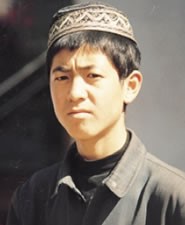Utsat in China

Photo Source:
Copyrighted © 2026
Operation China, Asia Harvest All rights reserved. Used with permission |
Send Joshua Project a map of this people group.
|
| People Name: | Utsat |
| Country: | China |
| 10/40 Window: | Yes |
| Population: | 8,300 |
| World Population: | 8,300 |
| Primary Language: | Tsat |
| Primary Religion: | Islam |
| Christian Adherents: | 0.00 % |
| Evangelicals: | 0.00 % |
| Scripture: | Translation Needed |
| Ministry Resources: | No |
| Jesus Film: | No |
| Audio Recordings: | No |
| People Cluster: | Malay |
| Affinity Bloc: | Malay Peoples |
| Progress Level: |
|
Introduction / History
The Utsat are known by a variety of names. The Chinese call them Huihui, a repetition of Hui - the generic term for Muslims in China. They call themselves Utsat or Tsat. Linguists in the past have called them Hainan Cham, in reference to their linguistic affiliation to the Cham people of Southeast Asia. The Utsat have been officially included as part of the Hui nationality in China, based solely on their adherence to Islam. The Utsat share no ethnic, historical, or linguistic relationship with the Hui. One writer comments, "It is unfortunate the [Utsat] have been assigned to this larger 'nationality', since the association is likely to discourage research directed specifically at this tiny group of Muslims."
German ethnographer Hans Stubel first "discovered" the Utsat people in 1930, but their history on Hainan Island is believed to date back to the eighteenth or nineteenth centuries, when they claim to have migrated by sea from present-day Vietnam or Cambodia. The Utsat still derive most of their income from fishing.
What Are Their Lives Like?
Utsat women wear traditional Muslim head coverings, except on special occasions when they wear a multicolored, flamboyant ethnic dress indicative of their unique origins. The southern part of Hainan Island is frequently lashed by severe typhoons. Much of the Utsat's time is spent recovering from the damage these storms cause. Fishing nets, boats, and homes are destroyed every year.
What Are Their Beliefs?
The Utsat were already Muslim by the time they arrived in China, and they have never wavered in their beliefs. They are the only Muslim community on Hainan Island. Muslim teachers from Malaysia have traveled to Hainan Island and taught the Koran to the Utsat since the mid-1980s. The Utsat do not eat pork, and they live in tightly structured communities.
Few Utsat have ever heard the gospel, and there has never been a single known Christian from among their group. They are considered resistant to change, since much of their identity as a people is strongly linked with their religion. The nearest vibrant Christian community to the Utsat are the Indonesians on Hainan Island. It is possible that audio gospel materials in the Cham language of Southeast Asia may be usable among the Utsat.
What Are Their Needs?
The Utsat people need to understand their need for a Savior and that the answer is found in relationship with Jesus. They need to see Jesus as the truth that has existed before the foundations of the world, rather than viewing belief in Him to be another foreign religion.
Prayer Points
Pray for signs and wonders to take place, revealing that Jesus is Lord over creation and the One true God.
Pray that miracles would lead to true repentance and life change, with the gospel transforming people's lives.
Pray that the Lord would encounter them and reveal himself to them in dreams.
Pray for courageous disciples of Jesus to be sent to these people with supernatural love and desire to see them saved.
Pray that no plan of the enemy would prosper and the gospel would go forth swiftly in the Utsat people.